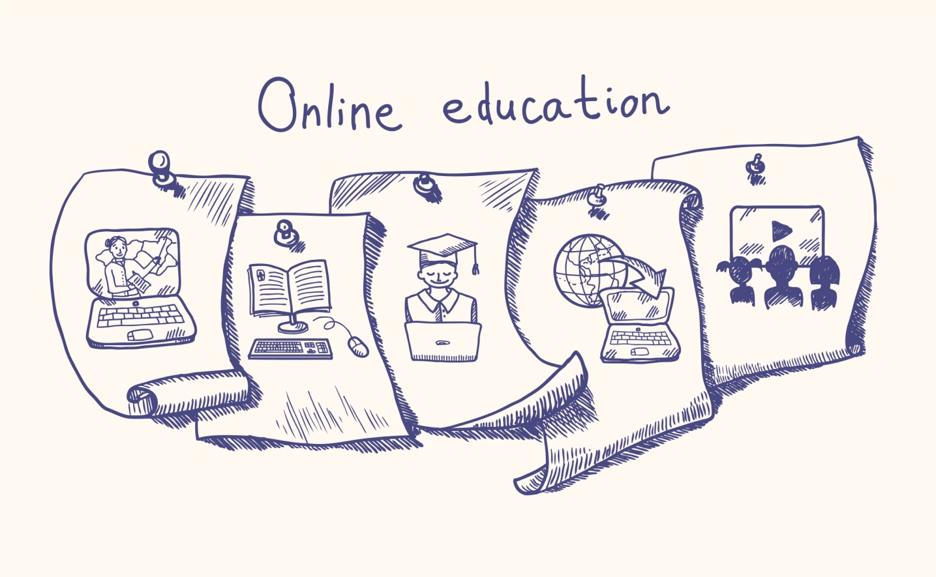When should you consider online learning?
If we as humans begin learning as soon as we are born and have the capacity to learn into retirement, why should education stop just because we graduate from high school or college?
 Photo by Ivan Bertolazzi from Pexels
Photo by Ivan Bertolazzi from Pexels
When a child is old enough, he/she is expected to go to school and later to college to get a formal education. If a person is gunning for a promotion, his first instinct is to improve his skills.
For this, he might consider a face-to-face course to give his resume the edge it needs. When people want to switch jobs or start a new business, they try their best to learn the tricks of the trade by speaking with others in their network or attending seminars or workshops. In neither case does it automatically cross their minds to give online learning a shot.
The tide is gradually shifting, with more and more people are choosing online learning in addition to or instead of sitting in a classroom. As you consider your future, here are a few scenarios where online learning is a viable option.
-
If you are a student who wants to learn a new skill or a subject outside your curriculum. Online courses are gaining popularity among school and college students because it offers them the freedom to study in their own time and at their own pace, without making any additional commitments. Further, online learning is often economically superior, and sometimes, even free.
-
If you are looking to take up something new and interesting. A creative designer who has over-used Photoshop for creating graphics might decide to explore new software to not only make new designs but also add special effects to them. A frustrated manager could be tired of tracking daily tasks of his staff members, so he decides to excel at spreadsheets. This not only makes organizing tasks easy but also improves accuracy.
-
If you are a working professional who wants to learn a new skill. There are some who simply wish to keep learning and enhancing their skill sets. Signing up for a traditional class could be unrealistic due to issues like lack of time or funds, or both. Some people, especially as they get older and have years of practical experience, don’t extract the same value by attending a classroom lecture. Online courses address all these issues - they offer the flexibility to study anywhere and at any time, and at a pace that suits the learner.
-
If you are someone who wants to stay updated with the latest advancements in your respective field, online courses could be the ideal tool to save the day. Nobody wants to miss the opportunity for a raise or promotion. However, many a time, senior employees are sidelined to make room for fresh talent. Online courses, many of which are university-affiliated, could give your skillset and career the boost it requires, with an efficient investment of time and money.

-
If you are looking to restart your career. Since you’ve taken a break from the world of work, the gap could prove to be a hiccup in securing a new job. There is nothing wrong in taking a break to focus on other priorities; however, if you have been on the bench for too long, you might as well be out of the game. Online learning could help you step into the game again, at a pace that makes sense for your situation.
-
If you are someone who is looking to switch careers because what you studied is not necessarily what you want to do anymore but you lack necessary skills or confidence to take the leap, online learning could help you achieve your goals. Graduating in one field and making a career in another is a common trend among millennials who wish to create their own career paths. This also applies to students who decide to switch from one educational field to another.
Researching your options
So, what’s the best way to understand what you’re getting into when it comes to selecting an online course? People use different methods when selecting a course. The usual approach is relying on word-of-mouth; asking their peers or colleagues for recommendations related to online courses that they took up. Another approach is Googling or reading posts on information platforms. Quora, for instance, is flooded with questions such as “which is the best online digital marketing course or AI or graphic designing”, or “which is the best education provider – edX or Udemy?”

As far as researching your options, this approach has a 50% chance of success in identifying learning options that suit your objectives. Eventually, you land up researching beyond frustration and at the end of it all, you may find yourself more confused than the outset. A more structured approach, however, would involve basing your selection on relevant factors:
- Skills possessed versus those desired
- Budget, both financial and time
- Certification required or not?
- University-affiliated course required or not?
- Level: beginner, intermediate or advanced?
Lore.online helps you filter your search for online learning options based on personalized recommendations, making it a smooth-sailing journey to selecting a course best suited to you.
A major cause for confusion among people searching for online learning options is the sheer number of websites that offer online courses. This abundance makes the process of visiting each website seem like a daunting task. Lore’s aim is therefore to make the task of searching for online learning options a breeze. This is why it lets you search for and compare online learning options from various reputed platforms such as Simplilearn, Udemy, Udacity, edX, Coursera, and Skillshare. For folks that prefer learning by watching videos, Lore also presents relevant YouTube and Vimeo videos as well. And the choice of online education providers is not limited to just these. Lore constantly adds new providers and features to help learners further enhance skills. With more and more people connecting on digital platforms that are emerging and evolving each day, online learning is bound to rise in popularity. For some, online courses could be the first college or even the first school they to attend.